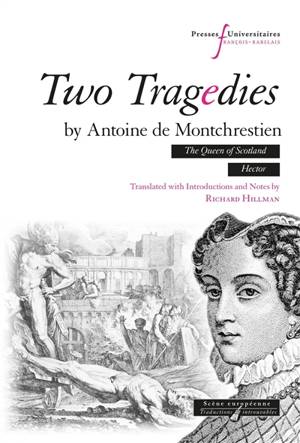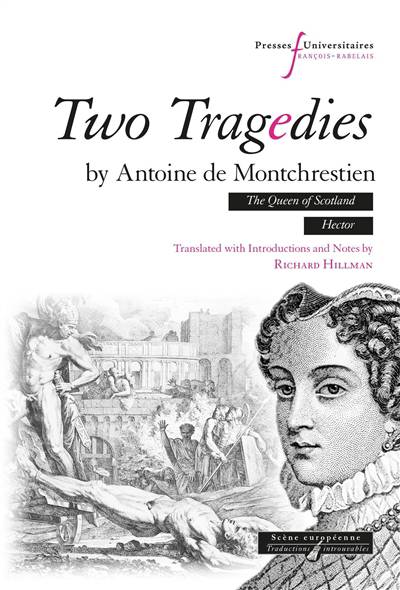
- Afhalen na 1 uur in een winkel met voorraad
- Gratis thuislevering in België vanaf € 30
- Ruim aanbod met 7 miljoen producten
- Afhalen na 1 uur in een winkel met voorraad
- Gratis thuislevering in België vanaf € 30
- Ruim aanbod met 7 miljoen producten
Omschrijving
Two Tragedies
Mysteries remain about the tumultuous life of Antoine de Montchrestien (1575-1621) a Norman of modest birth who acquired important political connections and substantial financial interests, yet met with a violent death. Though his literary career was brief (1596-1604), his six tragedies have attracted critical praise in French and English, especially for The Queen of Scotland and Hector. Apart from powerful poetic and dramatic effects, his work stands out for effecting a technical transition between "Humanist" theatre, associated especially with Robert Garnier, and the more rigorous classicism of the later 17th century. This contribution constitutes a considerable claim to innovation.
Richard Hillman's Introduction to The Queen of Scotland, with which the author hoped to gain favour with Mary Stuart's son, James I of England (James VI of Scotland), situates the play in the context of its complex and highly charged political contexts, as mediated by discourses dealing with Mary's execution (1587). The contexts brought to bear on Hector in the second Introduction are more strictly literary, although they have ethical and philosophical implications. They also serve as background to the proposition that, if not actually composed in the wake of Montchrestien's Trojan tragedy, Shakespeare's Troilus and Cressida gains depth from a reading in its light.
Specificaties
Betrokkenen
- Auteur(s):
- Vertaler(s):
- Uitgeverij:
Inhoud
- Aantal bladzijden:
- 249
- Taal:
- Engels
Eigenschappen
- Productcode (EAN):
- 9782869068056
- Verschijningsdatum:
- 20/01/2022
- Uitvoering:
- Paperback
- Afmetingen:
- 150 mm x 210 mm
- Gewicht:
- 350 g

Alleen bij Standaard Boekhandel
Beoordelingen
We publiceren alleen reviews die voldoen aan de voorwaarden voor reviews. Bekijk onze voorwaarden voor reviews.











